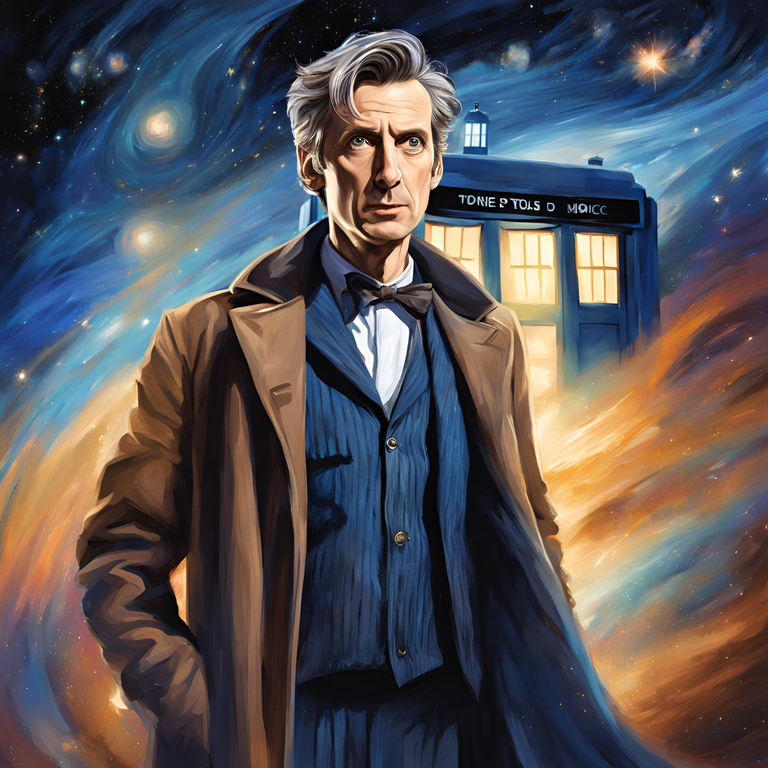Time travel: A Medical "Doctor Who" Perspective
 [AI generated]
[AI generated]
The idea of time travel gained popularity in the late 19th century, largely through literature and scientific speculation. However, the concept is quite ancient, as myths and religious stories have depicted elements of time distortion for centuries. Many of these stories describe varied experiences of time in realms like "heaven" or during periods of deep sleep.
One early example is found in the Indian epic Mahabharata, where King Kakudmi visits the god Brahma and, upon returning to Earth, discovers that many ages have passed.
In the late 19th century, advances in physics, such as James Clerk Maxwell's work on electromagnetism, began to challenge the idea that time was a fixed and absolute concept. However, it was H.G. Wells' novel The Time Machine, published in 1895, that truly popularized the idea of time travel as we know it today.
Time travel remained a subject of fiction until the early 20th century when Albert Einstein’s theory of special relativity introduced the idea that time is relative. This meant that time could move differently depending on factors like speed and gravity. This concept, known as time dilation, paved the way for the possibility of time travel, at least theoretically.
While Einstein’s theory didn’t directly discuss time travel, it did open the door for us to think of time in a more flexible way. Today, though time travel remains a work of fiction, there are many TV shows and movies that bring the concept to life. One such show is Doctor Who, where an enigmatic Time Lord travels through time and space in the TARDIS.
Although Doctor Who is primarily focused on fantastical adventures that shaped history, it also touches on the potential medical and psychological effects of time travel. Let’s take a look at a few of these.
Temporal Displacement Syndrome
In Doctor Who, the Doctor’s companions often experience severe disorientation when they first travel through time. This can be thought of as a type of temporal displacement syndrome, where the brain struggles to adjust to rapid shifts in time.
Our experience of time is deeply rooted in our brain’s biology. Circadian rhythms help regulate sleep, hunger, and other bodily functions. Disrupting these rhythms, such as when we travel across time zones, results in jet lag. Now, imagine jumping not just across time zones, but from the 21st century to ancient Rome or the distant future.
This would cause symptoms similar to jet lag, but far more intense. These could include insomnia, confusion, memory loss, and even psychosis, as the brain tries to reconcile rapid changes in the environment with the body’s internal clock.
The Aging Paradox
Time travel presents the idea of*** non-linear aging***, where traveling into the future allows you to bypass the biological process of aging. Normally, aging involves cell degeneration, DNA damage, and the accumulation of senescent (or aging) cells. But time travel could theoretically let you skip over these processes.
However, the effects of jumping between different timeframes or experiencing time dilation on the body are difficult to predict. Would the body age rapidly upon returning to its original time? Or could it potentially avoid aging altogether? The answer remains uncertain, but the potential consequences could be profound.
Psychological Impact
Now, imagine the emotional toll of traveling through time and witnessing traumatic historical events firsthand. Whether it’s the devastation of World War II, the fall of the Roman Empire, or the Salem witch trials, these experiences would have a lasting psychological impact.
Time travelers might also witness their own future or the death of loved ones. This could lead to extreme trauma, possibly resulting in conditions like PTSD or dissociative identity disorder, as the mind struggles to cope with such overwhelming experiences.
Conclusion
The medical implications of time travel are vast and complex. From disruptions to biological rhythms and aging processes to the psychological effects of witnessing traumatic historical events, time travel opens up a host of questions for medicine and science to explore.
As science continues to push the boundaries of what we know, we may one day need to address these questions if time travel ever becomes a reality. But until then, we’ll leave time travel to the Doctor and his TARDIS.
Thanks for reading.

I am Covenant, a Medical Doctor with a passion for holistic medicine-( fancy word for treating a patient as an individual and not just addressing their symptoms). My focus lies in the deep connection between mental health and overall wellbeing, and I create content across various medical topics with an emphasis on mental health. Follow me for insights into holistic medicine and approaches to health and wellness.
Take a look at some of my work
The Dawn of the Age of Drugs Without Side-effects
It is a Lie: Life does not begin at 40
Holistic Health: Simplifying Medicine, One Post at a Time
𝐋𝐢𝐜𝐞𝐧𝐬𝐞 𝐭𝐨 𝐠𝐞𝐭 𝐌𝐮𝐜𝐤𝐲: Examining Acute Bronchiolitis With The Hygiene Hypothesis
Ah, a medical view on fictitious time travel? That's rather interesting. This was informative in a lot of ways. Thank you for sharing!
my pleasure